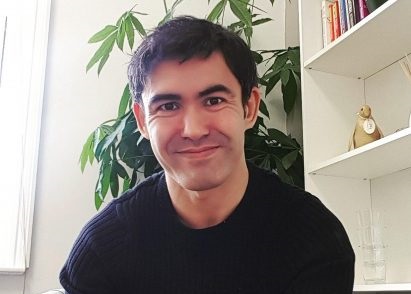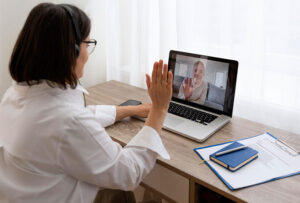Interview for BBC Radio Newcastle – Alfie Joey (Breakfast Show Presenter) and Dr Stuart Sadler (Clinical Psychologist at Newcastle Psychologist & Counselling).
Broadcast 23 September 2020 at 7:50am.
Alfie:
It’s exactly six months since lockdown began. What about the nation’s mental health. This was a conversation I saw on social media last night…
The last few months haven’t been a socially distanced “walk in the park”.
Dr. Stuart Sadler is a Clinical Psychologist based in Newcastle. He offers counselling, therapy and psychology services.
Thanks for speaking with us this morning, Dr. Sadler.
Stuart:
I’m happy to be here. Thank you for having me on.
Alfie:
Not a problem. What are the main mental health problems that you’ve heard people are facing as a result of the last six months, the pandemic.
Stuart:
Yeah, I think of the last six months people have been having a lot of problems with all the usual ones – things like anxiety and things like depression, but on top of this lockdown’s created a load of new problems…
People are having a lot of trouble with their sleep.
We’re seeing a lot of people having relationship difficulties because they’re not used to spending so much time with their partners or their family.
It’s leading to fall outs.
Amazingly and personally… we’ve not actually seen that many people that are actually worried about catching covid.
It’s been more that the effects of lockdown has made people become very self-reflective and for some people the isolation it’s made them think about things that have happened and stuff from the past’s coming back up.
Alfie:
Has it helped anyone?
I spoke to someone yesterday, well I was messaging them. And I said “How have you found lockedown?”
He said, “Honestly, it’s helped me sort my head out”.
Has it had a flip side to some people?
Stuart:
I think for some people it can have – it’s one of those things that…
That kind of came out of nowhere and it sideswiped everybody and I think for some people it’s allowed them to become a bit more reflective and given them a bit of breathing space where they’ve been able to sort things out.
I mean at the beginning of it, myself, I was kind of a joking that probably in about two years time, we’ll wish we had this time again, you know,
but I think now the fatigue is starting to wear on people and I think for a lot, especially the vulnerable people the self-isolation has caused a lot of problems.
So I think people have responded differently to it…
For some, I think it’s maybe been a helpful thing… I think for a lot more people though it’s caused problems for their mental health.
Alfie:
Winter’s on its way as well, the dark nights come along and we often have conversations about seasonal affective disorder.
Could we be looking to a bigger crisis even now with winter coming?
Stuart:
Yeah, I think that it’s going to be quite difficult winter…
Largely because of the virus but also the consequences of it because obviously we’re kind of talking about mental health, but all the things that we know affect mental health, you know, like just dark nights do tend to affect,
It could cause again disruption to people’s sleep, the stress of Christmas that’s going to come about as it usually does the uncertainty about the future…
About what it’s going to look like as well and again… as you say we all just feel a little bit more like a little bit “blah” don’t we in winter and have a little bit less energy.
So all of those things compounded on top of another period of lockdown it’s likely that it’s gonna be a difficult winter for a lot of people this year.
Alfie:
So what can you do to… I don’t know… help yourself?
Are there any little safe-guarding tools you could suggest that people should try just to give themselves a chance to combat this?
Stuart:
Yeah – I think that the most important thing is that we try to keep a routine as much as possible.
I think the reason for that is because we’re in a situation where it’s unpredictable.
We don’t know what’s going to happen and human beings… We don’t do very well without a sense of control or feeling of control.
Some people have been struggling with their jobs and the like and I think trying to keep a sense of normality as much as possible…
So connecting with people as much as we can within safe limitations obviously and trying to keep work and life separate still because with working at home, a lot of people…
The line gets blurred between work and home life and that causes a lot of sleep trouble… people are working in the bedroom and the like.
Alfie:
When you say connecting with people more I wonder whether spending too much time on social media can be part of the problem…
Some of the people I see who are really struggling are living their on the Internet or comparing themselves against other people who,
“Well it’s alright for you learning a language and instrument and I’m struggling here”.
Might it be better that they just pick up the phone and chat to someone rather than just spend that time in that virtual reality of Facebook?
Stuart:
Exactly… and we’ve kind of suspected in psychology for a while about the upsides and especially the downsides of social media and how it does lead to that comparison…
And with that… You know, we are a social creature. We’re used to living around people.
We need connections. So speaking to important people – people that we care
about whether it’s over the phone, over Zoom, Skype.
That’s really essential, especially for people who are vulnerable and shielding
Alfie: Absolutely. Listen great advice, and we’ll speak to you again. Thanks very much.
Dr. Stuart Sadler there, Clinical Psychologist based in Newcastle.
END OF TRANSCRIPT
For Further Therapy or Counselling in Newcastle
If you are concerned by any of the issues raised, or any other aspect of your mental health, contact us on 07966 645198 or using the box below to see if we can help.

Best wishes,
Dr Stuart Sadler
Chartered Clinical Psychologist
Newcastle Psychologist & Counselling




